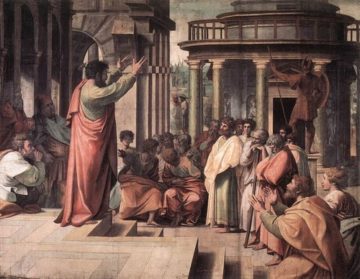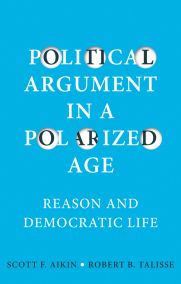by Scott F. Aikin and Robert B. Talisse

We tend to think of democracy as a set of governmental institutions. We see it as a political order characterized by open elections, constitutional constraints, the rule of law, freedom of speech, a free press, an independent judiciary, and so on. This makes good sense. These institutions indeed loom large in our political lives.
However, political institutions differ considerably from one purportedly democratic society to the next. Voting procedures, representation schemes, conceptions of free speech, and judicial arrangements are not uniform across societies that are widely regarded as democratic. In some of these countries, voting is required by law and military service is mandatory. In others, these acts are voluntary. Some democratic countries have distinct speech restrictions, others have different and blurrier boundaries. And the ancient Athenians appointed their representatives to the Boule by lot, instead of by vote. Given these variations, how can these societies all be democracies?
This leads to the thought that although certain institutional forms are characteristic of democracies, democracy itself should be identified with the kind of society those institutions realize. We hence can see how two societies with distinct constitutions nevertheless can be democratic.
This prompts the obvious question: What kind of society is a democracy? Read more »



